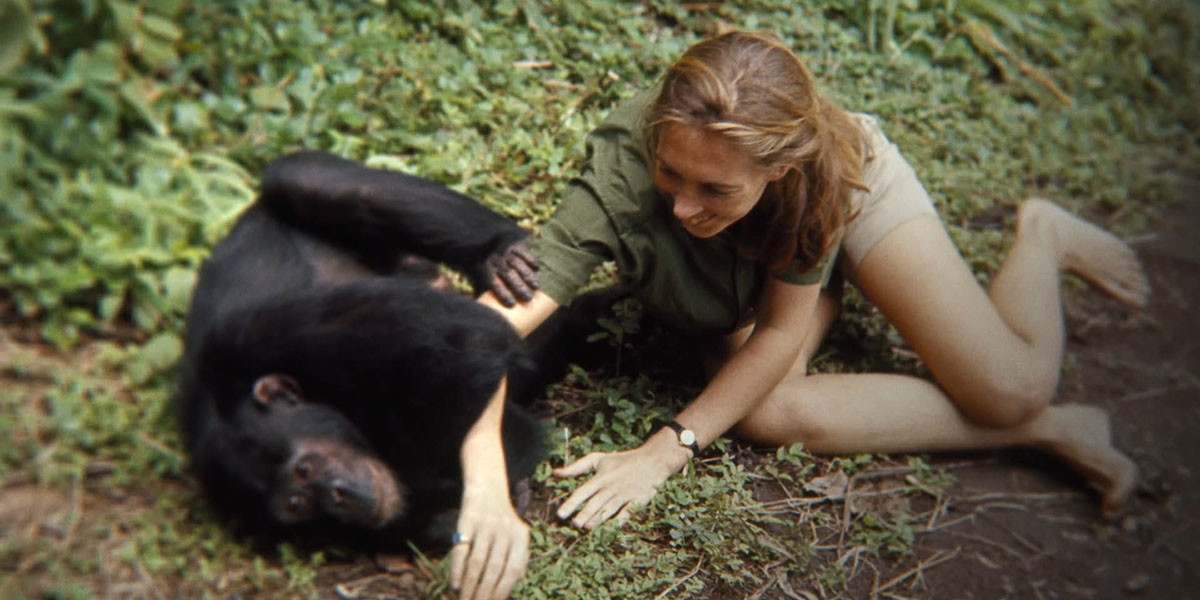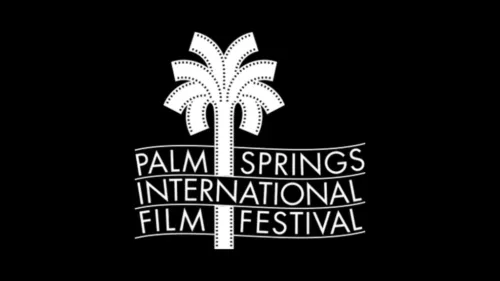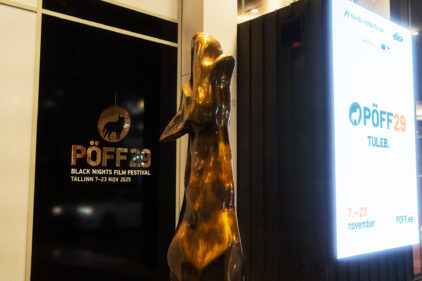The most talked-about documentary of the 2017 Toronto International Film Festival came to the annual event courtesy of one of the form’s current best filmmakers, Brett Morgen. Always surprising and always deeply considered, Morgen’s documentaries defy the standard expectations of the stuffy, talking-head bio-doc, both in approach and execution. By coming at his subjects from unique angles, often at least in some way channeling the creative spirit of the people he’s profiling, he illuminates something about their process through his own. With films like “The Kid Stays in the Picture,” “Kurt Cobain: Montage of Heck,” and now “Jane” he’s really setting the bar for profile documentaries. Morgen is clearly fascinated in pioneers of their individual fields, while changing the rules for his own field at the same time.
The pioneer here is Jane Goodall, and you’re probably having one of two thoughts right about now. Either you think you know all there is to know about Jane Goodall or you think you probably wouldn’t want to know much about Jane Goodall. Trust me that neither is true. You probably know that Goodall revolutionized the way we understand and interact with chimps, but may not realize the depth of her courage or accomplishments. And, most of all, you may not realize how incredible her story can be in Morgen’s hands. This is a mesmerizing documentary, filled with incredible footage of Goodall in the field and modern-day interviews, all set to the best score from Philip Glass in years.
The project came about when over 140 hours of 16mm archival footage of Goodall in Gambe, where she first studied chimps and really changed the world, was discovered. As Morgen told me in an illuminating interview tragically lost to the curse of corrupted audio, the task of assembling the footage into a feature film was even more daunting than one might think. The footage had been used for National Geographic and so had been cut up into clips—the 140 hours weren’t even chronological or in large chunks of associated scenes. The first project was just to get the footage into categories—“Chimps,” Jane’s mother,” etc.—and then the real work could begin. It took two years. And then he ties it all together with a Glass score that recalls some of his best cinematic work, reminding me of “Koyaanisqatsi,” especially in the sense that this is another film that illuminates the flow of the natural world. At first, I’ll admit that the Glass piece felt a bit overwhelming, as his work often does, but it becomes essential to the overall impact of the piece. By the end, I couldn’t imagine the movie without it.
The result is a fluid piece of work that, as cheesy as this sounds, doesn’t only place Goodall on a well-deserved pedestal in scientific history but teaches us something about ourselves in the process. First, Morgen grounds Goodall, showing us footage of her supportive mother and explaining that Goodall’s fearlessness in the field came largely from a lack of knowledge. No one knew enough about chimps to know they could be violent enough to be feared. Her first major breakthrough came when she filmed a chimp using a branch to obtain termites to eat. While that may not sound like a big deal in 2017, at that time it was believed that man were the only species to use tools. They are not. This news rocked the world, especially religious institutions.
It’s just one of several scenes in “Jane” that both educated and moved me. The first time the chimps trusted Goodall enough to get close enough to take a banana from her honestly gave me the chills. A baby chimp learning how to walk is one of the most moving things I’ve seen in a film this year. And Goodall is an insightful and philosophical narrator. At one point she says, “I was getting closer to animals and nature and, as a result, closer to myself.” What’s amazing is how much the film works to get us closer to her, by extension, and therefore closer to her incredible work. It’s also notable how often Goodall is silent in the archival footage—observing the world around her—and we’re hearing the wisdom of age and hindsight in her narration. In that sense, it’s about her evolution as well. Hers, the chimps, Morgen’s, and ours—“Jane” creates a throughline between work done 50 years ago and what we value in 2017. It’s an astonishing accomplishment.












